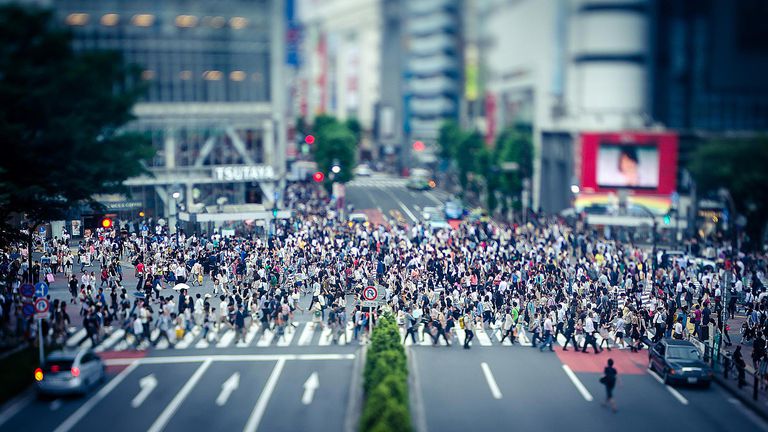Last week the Centers for Disease Control & Prevention (CDC) announced that the US experienced a record surge in drug overdoses last year. More than 93,000 Americans died of drug overdoses in 2020, increasing 30% compared to 2019. Ten states in the US are expected to show an increase of at least 40% in overdose deaths compared to 2019. Men and women between the ages 35-44 accounted for the highest number of deaths in the overdose surge of 2020.
The overdose crisis in the US has been ongoing for years. Opioid overdoses became the leading cause of death for Americans under the age of 55 in 2019. In 2018, more than 1,000 Americans died from synthetic opioid overdoses every two weeks. Since 2005, 26 states have experienced increases in drug overdoses of between 107%-450%.
Numerous policies, lawsuits, awareness campaigns, and steps were taken to counter the deadly trend starting in 2015, but the stressors of the pandemic and lockdowns in 2020 seem to have easily overwhelmed all of those efforts.
Drug overdoses are not the only problem when it comes to self-harm today. Before the coronavirus, the world was experiencing an epidemic of suicide. Between 1999 and 2017, suicides in the US rose by 30%. On average, the country experiences 132 suicides per day. According to the National Institute of Mental Health, in 2019, suicide was the second leading cause of death among individuals between the ages of 10 and 34 and the fourth leading cause of death among individuals between the ages of 35 and 44. For all the talk of gun violence, 2019 saw nearly twice as many suicides as homicides that year.
The rising rate of suicide is not a strictly US phenomenon either. It is a global trend. In 2019, according to the World Health Organization, around the world, one person dies by suicide every 40 seconds. In the final months of 2020, more people in Japan died by suicide than the coronavirus.
In recent years, scholars defined the surging growth in deaths by suicide and drug overdoses as deaths of despair. These deaths represent a terrible growing trend of human beings who cannot tolerate life any longer. In an age of unprecedented instant gratification, physical comfort, and self-realization, life is falling apart. People cannot bear to face reality or themselves, and one way or the other, they seek escapes.
When a crisis hits our society today, the most common collective response is to find someone to blame. From mass shootings to the pandemic failures in Afghanistan to condos collapsing in Florida, we take comfort in assigning blame to someone when bad things happen. Somehow the crisis of deaths of despair escaped that standard. It is (rightly) inappropriate to blame the victims of these tragedies, and we do not know where to turn beyond that. Perhaps the hesitancy to assign blame in these tragedies is because doing so would indict the fundamental underpinnings of our society itself.
In my series on a Kingdom Worldview, I explained that a Babylonian Worldview is any view of life derived from the earth. Today these earth-based Babylonian worldviews define the self, individual happiness, and self-centeredness as the meaning of life. Television shows explain to us that individual happiness is the essential objective for ourselves and our children. Education systems prepare us for a pathway of personal fulfillment. Our careers are defined by individual gain. From relationships to hobbies, personal responsibilities to life-long aspirations, the primacy of the self has subtly become a god that our society encourages us to exalt.
A self-centered design of life is not only unbiblical; it is anti-Christ. The world tells us to “reward yourself.” Christ tells us to “take up your cross every day and follow Me” (Luke 9:23). The ethos of Babylon is to live for the self, and that standard filters into all areas of life. It is a subtle call to darkness that dysfunctionalizes and warps how we live and view life when we embrace that deception.
The design of God is for our life to be lived from a posture of strength, but that strength is only realized when we live in accordance with His design. In God’s design, He – not me – is at the center of everything. In Him we live and move and have our being (Acts 17:28). Understanding and obedience to His will rather than my desires is the center of a correct, fulfilled and strong life.
Blessed is the man
who walks not in the counsel of the wicked,
nor stands in the way of sinners,
nor sits in the seat of scoffers;
but his delight is in the law of the LORD,
and on his law he meditates day and night.
Psalm 1:1-2
He will render to each one according to his works: to those who by patience in well-doing seek for glory and honor and immortality, he will give eternal life; but for those who are self-seeking and do not obey the truth, but obey unrighteousness, there will be wrath and fury. There will be tribulation and distress for every human being who does evil, the Jew first and also the Greek, but glory and honor and peace for everyone who does good, the Jew first and also the Greek. For God shows no partiality.
Romans 2:6-11
As you begin your week, consider where the primacy of self is active in your life. Where are adjustments needed? Where does the god of self need to be replaced by the one true God in our lives and perspectives?





What do you think?
Show comments / Leave a comment